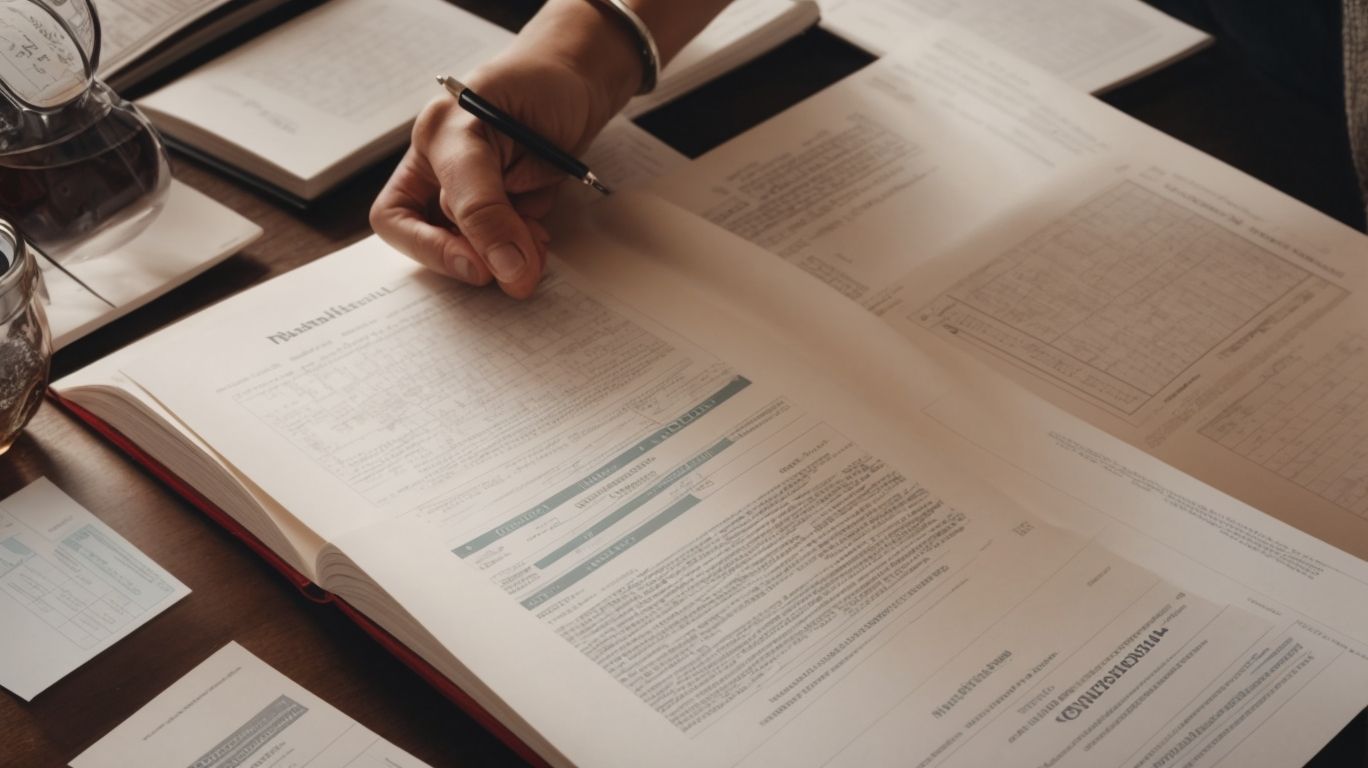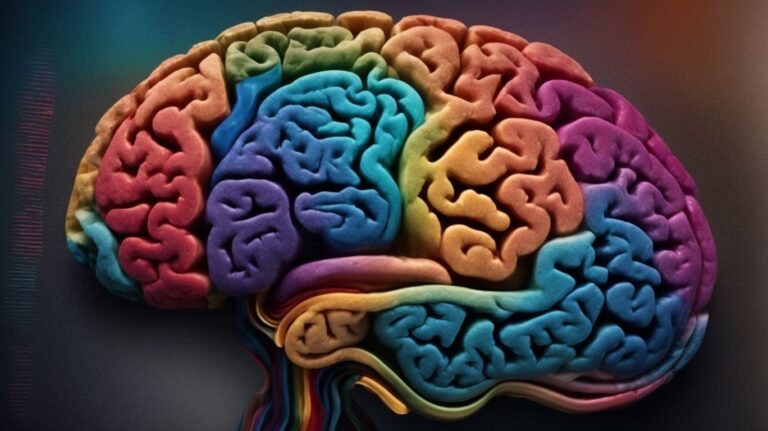Are you interested in a career in psychology? Have you ever wondered what it takes to become a licensed psychologist?
In this article, we will explore the ins and outs of obtaining a psychology license, including the requirements, steps, and benefits. From education requirements to supervised experience and examinations, we will provide you with a comprehensive step-by-step guide to help you navigate the process.
So, if you’re ready to take the next step in your psychology career, keep reading to learn more!
Contents
- 1 What Is a Psychology License?
- 2 Why Is a Psychology License Important?
- 3 What Are the Requirements for Obtaining a Psychology License?
- 4 How Long Does It Take to Obtain a Psychology License?
- 5 What Are the Steps to Obtaining a Psychology License?
- 5.1 Step 1: Complete a Bachelor’s Degree in Psychology or a Related Field
- 5.2 Step 2: Earn a Master’s Degree in Psychology
- 5.3 Step 3: Complete a Doctoral Degree in Psychology
- 5.4 Step 4: Complete Supervised Experience Requirements
- 5.5 Step 5: Pass the Examination for Professional Practice in Psychology (EPPP)
- 5.6 Step 6: Apply for Licensure
- 6 How Much Does It Cost to Obtain a Psychology License?
- 7 What Are the Benefits of Obtaining a Psychology License?
- 8 Frequently Asked Questions
- 8.1 What are the necessary steps to obtain a psychology license?
- 8.2 How long does it take to obtain a psychology license?
- 8.3 Is it required to have a specific type of degree to obtain a psychology license?
- 8.4 Can I start practicing as a psychologist without a license?
- 8.5 How do I know what type of psychology license to obtain?
- 8.6 Are there any additional requirements to maintain a psychology license?
What Is a Psychology License?
A psychology license is an official certification granted to psychologists who meet specific requirements set by regulatory bodies.
Having a psychology license is paramount for professionals in the field as it signifies their competence, ethical standards, and commitment to providing quality care to clients. This license demonstrates that the psychologist has completed the necessary education, training, and supervised experience to practice safely and effectively.
Holding a psychology license also enables practitioners to legally offer a wide range of psychological services, including therapy, assessments, and counseling, while adhering to the ethical guidelines and standards of their respective regulatory boards. It also provides credibility and reassurance to clients that they are working with a qualified and regulated professional.
Why Is a Psychology License Important?
Obtaining a psychology license is crucial for psychologists as it signifies their competency and adherence to professional standards in the field.
Having a psychology license demonstrates to clients, colleagues, and regulatory bodies that a psychologist has met the rigorous educational and training requirements necessary to practice ethically and effectively.
By upholding a psychology license, practitioners commit to ongoing professional development, which ensures they stay updated with the latest research, treatments, and ethical guidelines. This dedication to continuous learning and improvement directly impacts the quality of care provided to clients, promoting trust and confidence in the profession.
What Are the Requirements for Obtaining a Psychology License?
The process of obtaining a psychology license involves meeting specific criteria related to education, supervised experience, and examinations.
Requirements for acquiring a psychology license typically include earning a doctoral degree in psychology from an accredited institution. This is followed by completing a certain number of supervised clinical experience hours, usually ranging from 1,500 to 6,000 hours, depending on the state’s regulations. After fulfilling these experience mandates, applicants are required to pass the Licensing Examination for Professional Practice in Psychology (EPPP), a standardized test covering various areas of psychology knowledge. Candidates often need to pass a jurisprudence exam to showcase understanding of the legal and ethical aspects of practice.
Education Requirements
Completing the necessary educational requirements is a fundamental step towards obtaining a psychology license, typically involving the completion of a doctoral degree in psychology from an accredited institution.
Obtaining a doctoral degree in psychology from an accredited institution is crucial not only for academic rigor but also for professional accreditation. This advanced degree provides students with in-depth knowledge of psychological theories, research methods, and practical training. Through specialized coursework and hands-on experience, individuals develop the necessary skills to understand human behavior and apply psychological principles in clinical settings.
Continuing education in psychology ensures that aspiring psychologists meet the rigorous standards set by professional licensing boards. Earning a doctoral degree requires dedication, perseverance, and a commitment to excellence in the field of psychology.
Supervised Experience
Gaining supervised experience is a critical requirement for obtaining a psychology license, involving the completion of a specified number of supervised clinical hours under the guidance of a licensed professional.
During this phase, individuals gain hands-on experience in diagnosing and treating patients while receiving feedback and guidance from experienced mentors. The exact number of required hours can vary based on the specific licensing board requirements, but typically ranges from 1,500 to 3,000 hours.
These supervised clinical hours serve as a vital part of the training process, allowing aspiring psychologists to apply theoretical knowledge in real-world scenarios and develop their clinical skills under close supervision.
Examination
Passing specific examinations such as the EPPP and CPLEE is a key requirement for obtaining a psychology license, demonstrating proficiency in the core competencies of the profession.
These exams play a crucial role in ensuring that aspiring psychologists meet the rigorous standards set by licensing boards. The EPPP assesses the candidate’s knowledge of psychology principles, diagnosis, and treatment methods through a comprehensive multiple-choice format.
On the other hand, the CPLEE focuses on state-specific laws and regulations governing the practice of psychology, emphasizing ethical considerations and professional conduct.
Successful completion of these exams signifies that the individual has attained the necessary knowledge and skills to practice psychology safely and effectively, safeguarding the well-being of clients and maintaining the integrity of the profession.
How Long Does It Take to Obtain a Psychology License?
The timeline for obtaining a psychology license can vary depending on individual circumstances, with factors such as education, experience, and examination preparation influencing the overall duration.
On average, the process of obtaining a psychology license typically takes around 7-8 years from the start of undergraduate studies to becoming a fully licensed psychologist. This duration can fluctuate based on several key elements.
Education plays a crucial role in the timeline as the completion of a doctoral program in psychology is a fundamental requirement. Additionally, experience gained through internships and supervised practice hours is vital for meeting licensure criteria. Proper examination preparation for standardized tests like the EPPP is also essential, as it can significantly impact how swiftly one secures their license.
What Are the Steps to Obtaining a Psychology License?
The journey towards obtaining a psychology license involves a series of structured steps, encompassing educational milestones, supervised experience, examination preparation, and the formal licensure application process.
One must complete a Bachelor’s degree in psychology or a related field as the foundation for further education. Following this, pursuing a Master’s or Doctoral degree in psychology is essential. Graduate programs typically involve coursework in various specializations and hands-on clinical or research experience.
After completing the required educational credentials, individuals move on to gaining supervised experience. This phase involves working under the guidance of licensed psychologists to accumulate the necessary hours of clinical practice for licensure.
Step 1: Complete a Bachelor’s Degree in Psychology or a Related Field
The initial step towards a psychology license involves completing a bachelor’s degree in psychology or a closely related field, laying the foundation for advanced studies in the discipline.
During their undergraduate education, aspiring psychologists not only acquire a solid understanding of core psychological theories and principles but also develop crucial skills such as critical thinking, research methods, and effective communication. Undergraduate studies provide students with the opportunity to explore various branches of psychology, from cognitive to developmental psychology, giving them a broad perspective on the field.
Step 2: Earn a Master’s Degree in Psychology
Pursuing a master’s degree in psychology is a crucial step towards fulfilling the educational requirements for a psychology license, allowing for specialized training and skill development in the field.
At the graduate level, students delve deeper into various areas of psychology, such as clinical, counseling, or research-focused tracks, honing their expertise through coursework and hands-on experience.
This advanced training equips individuals with the knowledge and skills necessary to work in diverse settings, from healthcare institutions to educational facilities, and allows for specialization in specific areas of interest.
Step 3: Complete a Doctoral Degree in Psychology
Attaining a doctoral degree in psychology is a pivotal requirement for psychologists seeking licensure, with programs focusing on advanced research, clinical practice, and professional development.
Doctoral programs in psychology not only provide an in-depth understanding of various theoretical perspectives and evidence-based practices but also offer specialized training in areas such as neuropsychology, counseling, or forensic psychology. Advanced coursework and practical experiences immerse students in both research endeavors and hands-on clinical work, honing their skills under the guidance of experienced faculty and mentors.
- Students pursuing a doctoral degree dedicate themselves to extensive dissertation work, contributing to the field’s knowledge base through original research that addresses current issues and challenges in psychology.
- Aside from academics, these programs often incorporate professional development components, equipping future psychologists with essential skills for successful practice, including ethics, cultural competence, and interdisciplinary collaboration.
Step 4: Complete Supervised Experience Requirements
Fulfilling supervised experience requirements involves gaining hands-on clinical training under the supervision of licensed professionals to develop essential skills and competencies for independent practice.
Supervised clinical experience provides aspiring healthcare professionals with the opportunity to apply theoretical knowledge in real-world scenarios, fostering a deep understanding of patient care and professional responsibilities. Through direct mentorship , individuals receive personalized guidance and feedback, enabling them to refine their clinical judgment and decision-making abilities. This structured training cultivates professionalism, communication skills, and ethical conduct in budding practitioners, laying a strong foundation for their future practice.
Step 5: Pass the Examination for Professional Practice in Psychology (EPPP)
Successfully passing the Examination for Professional Practice in Psychology (EPPP) is a critical milestone towards obtaining a psychology license, assessing candidates’ knowledge and competence in the field.
Recognized as one of the most rigorous exams in the field of psychology, the EPPP evaluates aspiring psychologists’ understanding of various domains, including biological bases of behavior, assessment and diagnosis, treatment interventions, ethical and legal standards, and more.
Preparing for the EPPP requires a comprehensive study plan covering a vast array of topics. It is crucial for candidates to delve into resources such as textbooks, practice exams, and review courses to ensure thorough understanding of the test material.
- Creating a study schedule with dedicated time for each domain helps individuals manage their preparation effectively.
- Engaging in practice tests to familiarize oneself with the exam format and time constraints can enhance performance on the actual test day.
- Utilizing study groups or seeking guidance from established professionals can provide valuable insights and support during the preparation phase.
Step 6: Apply for Licensure
The final step in the licensure process involves submitting a formal application for a psychology license to the state licensing board, providing all required documentation and meeting specified criteria.
Upon embarking on the application journey, aspiring psychologists must meticulously gather the essential documentation, such as official transcripts from their graduate programs, verification of supervised experience hours, letters of recommendation, and a completed application form. It is crucial to ensure all documents are accurate, up-to-date, and in line with the state board’s guidelines. Failure to submit complete and accurate information can significantly delay the processing of the application.
How Much Does It Cost to Obtain a Psychology License?
The total cost of obtaining a psychology license can vary based on factors such as application fees, examination costs, and any additional expenses related to educational or training requirements.
Application fees for psychology licensure generally range from $100 to $500, depending on the state and licensing board. In addition, candidates may incur costs for the licensing exam, such as the Examination for Professional Practice in Psychology (EPPP), which usually has a registration fee of around $600 to $700.
Aspiring psychologists might need to cover expenses for fulfilling supervised experience hours, which could involve fees for supervision, documentation, and any required continuing education courses.
What Are the Benefits of Obtaining a Psychology License?
Securing a psychology license offers numerous advantages, including professional recognition, eligibility for state-specific practice, and enhanced career opportunities within the field of psychology.
Having a valid psychology license not only signifies expertise and commitment to ethical standards but also grants the authority to legally diagnose and treat mental health disorders. Establishing credibility and trust among clients and colleagues becomes easier as licensed professionals adhere to strict guidelines and regulations. With a psychology license, psychologists can access a wider range of job prospects, such as private practice, research positions, or academic roles, leading to potential salary increases and career growth.
Frequently Asked Questions
What are the necessary steps to obtain a psychology license?
The first step is to earn a bachelor’s degree in psychology, followed by a master’s or doctoral degree in psychology. After that, you must complete supervised clinical experience and pass a licensure exam.
How long does it take to obtain a psychology license?
The time frame can vary, but on average it takes around 8-12 years to obtain a psychology license. This includes completing a bachelor’s degree, graduate studies, supervised experience, and passing the licensure exam.
Is it required to have a specific type of degree to obtain a psychology license?
To obtain a psychology license, you must have at least a master’s degree in psychology. However, some states may require a doctoral degree for certain types of licenses.
Can I start practicing as a psychologist without a license?
No, it is illegal to practice psychology without a license. In order to protect the public, all states require psychologists to be licensed before they can provide services to clients.
How do I know what type of psychology license to obtain?
The type of license you need will depend on the type of services you want to provide. Some common types of licenses include clinical, counseling, and school psychology licenses.
Are there any additional requirements to maintain a psychology license?
Yes, most states require licensed psychologists to complete continuing education courses on a regular basis to stay up-to-date on the latest research and practices in the field. This is necessary to maintain the license and continue practicing legally.




